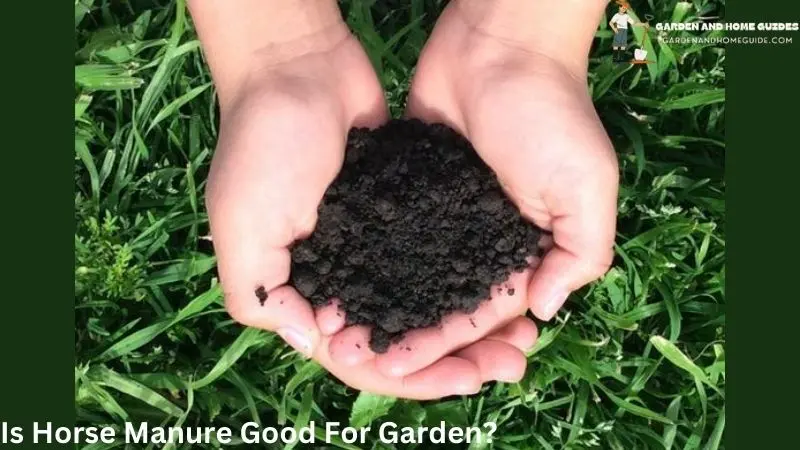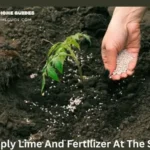Tree Care
Is Horse Manure Good For Garden?
For centuries, farmers and gardeners have recognized the transformative power of horse manure. This natural byproduct, often dismissed as waste, holds the key to unlocking vibrant, healthy gardens.
Its rich composition, teeming with nutrients and beneficial microorganisms, makes it a valuable resource for enriching soil and promoting plant growth. But how does one harness the power of horse manure effectively? And what are the best ways to utilize this golden gift in the modern garden?
Let’s learn more about horse manure with gardenandhomeguide.com in the article below!
Is Horse Manure Good For Garden?
Substances Contained In Horse Manure
Horse manure is a treasure trove of essential nutrients that plants crave. Its composition varies depending on the horse’s diet and the age of the manure, but generally, it contains a potent mix of:
- Nitrogen (N): Crucial for lush foliage growth, nitrogen is abundant in fresh manure.
- Phosphorus (P): Essential for robust root development and flowering, phosphorus is found in moderate amounts.
- Potassium (K): Vital for disease resistance and overall plant health, potassium is present in varying levels.
- Organic Matter: This decomposing material improves soil structure, aeration, and water retention, creating a welcoming environment for roots.
- Beneficial Microorganisms: Myriad bacteria and fungi break down organic matter, releasing nutrients and enhancing soil fertility.
This nutrient-rich cocktail makes horse manure an ideal natural fertilizer, offering a sustainable alternative to synthetic fertilizers. However, its effectiveness hinges on proper handling and application, as its raw form can be too potent for delicate plants.
The Benefits of Horse Manure: A Sustainable and Eco-Friendly Approach
Using horse manure in the garden offers numerous benefits, making it a sustainable and eco-friendly choice:
- Nutrient Enrichment: Horse manure provides essential nutrients for plant growth, reducing the need for synthetic fertilizers.
- Soil Improvement: Composted manure improves soil structure, aeration, and water retention, creating a healthy environment for roots.
- Reduced Waste: By utilizing horse manure, we reduce waste and promote a circular economy.
- Environmental Protection: Horse manure is a natural resource that does not contribute to pollution or harmful chemical runoff.
Considerations for Using Horse Manure:
While horse manure offers numerous benefits, it’s important to consider a few factors:
- Source: Ensure the manure is from healthy horses and has not been treated with any harmful chemicals.
- Age: Use only composted or aged manure to avoid burning plants.
- Quantity: Apply manure in moderation, as excessive amounts can lead to nutrient imbalances.
Fertilizing with Horse Manure: A Guide to Unleashing its Power
The key to successfully utilizing horse manure lies in understanding its stages of decomposition and applying it appropriately. Fresh manure, often referred to as “hot” manure, is rich in nitrogen but can burn plants if applied directly. This is because the decomposition process generates heat and releases ammonia, which can damage roots. Therefore, it’s crucial to age the manure before using it in the garden.
Composting: The Art of Transforming Horse Manure into Garden Gold
Composting is the most effective way to transform fresh horse manure into a safe and potent fertilizer. This process involves mixing manure with other organic materials like leaves, straw, and kitchen scraps. As the mixture decomposes, the heat generated by the manure kills harmful pathogens and reduces the risk of burning plants.
The Composting Process:
- Choose a Composting Method: There are various composting methods, including bin composting, pile composting, and vermicomposting (using worms).
- Layer the Materials: Create layers of manure, brown materials (carbon source), and green materials (nitrogen source) in your compost bin or pile.
- Maintain Moisture and Aeration: Keep the compost moist but not soggy, and turn it regularly to ensure proper aeration.
- Patience is Key: Composting takes time, typically 6-12 months for horse manure to fully decompose.
Applying Composted Manure:
Once the manure has fully composted, it can be safely applied to the garden. Here are some common methods:
- Topdressing: Spread a thin layer of compost around plants, working it lightly into the soil.
- Incorporating into Soil: Mix compost into the soil before planting or during the growing season.
- Starting Seeds: Use composted manure as a base for starting seeds, providing essential nutrients and promoting healthy growth.
Beyond Composting: Other Options for Utilizing Horse Manure
While composting is the most common method, other options exist for utilizing horse manure in the garden:
- Hot Composting: This method involves creating a hot compost pile with a high ratio of manure to other materials. The heat generated can kill weed seeds and pathogens, making it suitable for preparing soil for planting.
- Manure Tea: Steeping composted manure in water creates a nutrient-rich liquid fertilizer that can be applied directly to plants.
- Manure Pellets: These commercially available pellets are a convenient and readily available form of composted horse manure.
Horse Manure Products: A Modern Approach to Garden Enhancement
The popularity of horse manure as a natural fertilizer has led to the development of various products on the market today. These products offer convenience and consistency, making it easier for gardeners to access the benefits of horse manure.
Composted Manure Products:
- Compost Tea Bags: These bags contain pre-composted manure that can be steeped in water to create a nutrient-rich tea.
- Manure Pellets: As mentioned earlier, these pellets are a convenient and concentrated form of composted manure.
- Manure-Based Soil Amendments: These products combine composted manure with other organic materials to improve soil structure and fertility.
Other Products:
- Manure-Based Worm Castings: Worm castings are the byproduct of earthworms digesting manure, offering a highly concentrated source of nutrients and beneficial microorganisms.
- Manure-Based Biochar: Biochar is a charcoal-like material produced from the pyrolysis of manure. It improves soil structure, water retention, and nutrient availability.
The Benefits of Horse Manure: A Sustainable and Eco-Friendly Approach
Using horse manure in the garden offers numerous benefits, making it a sustainable and eco-friendly choice:
- Nutrient Enrichment: Horse manure provides essential nutrients for plant growth, reducing the need for synthetic fertilizers.
- Soil Improvement: Composted manure improves soil structure, aeration, and water retention, creating a healthy environment for roots.
- Reduced Waste: By utilizing horse manure, we reduce waste and promote a circular economy.
- Environmental Protection: Horse manure is a natural resource that does not contribute to pollution or harmful chemical runoff.
Considerations for Using Horse Manure:
While horse manure offers numerous benefits, it’s important to consider a few factors:
- Source: Ensure the manure is from healthy horses and has not been treated with any harmful chemicals.
- Age: Use only composted or aged manure to avoid burning plants.
- Quantity: Apply manure in moderation, as excessive amounts can lead to nutrient imbalances.
Conclusion: Embracing the Golden Gift
Horse manure, once considered waste, is a valuable resource for gardeners seeking to create thriving and sustainable gardens. By understanding the benefits and proper methods of utilization, we can harness the power of this golden gift to nurture our plants and enrich our soil.
As we move towards a more sustainable future, embracing natural solutions like horse manure is essential for creating healthy ecosystems and promoting a harmonious relationship between humans and nature.






